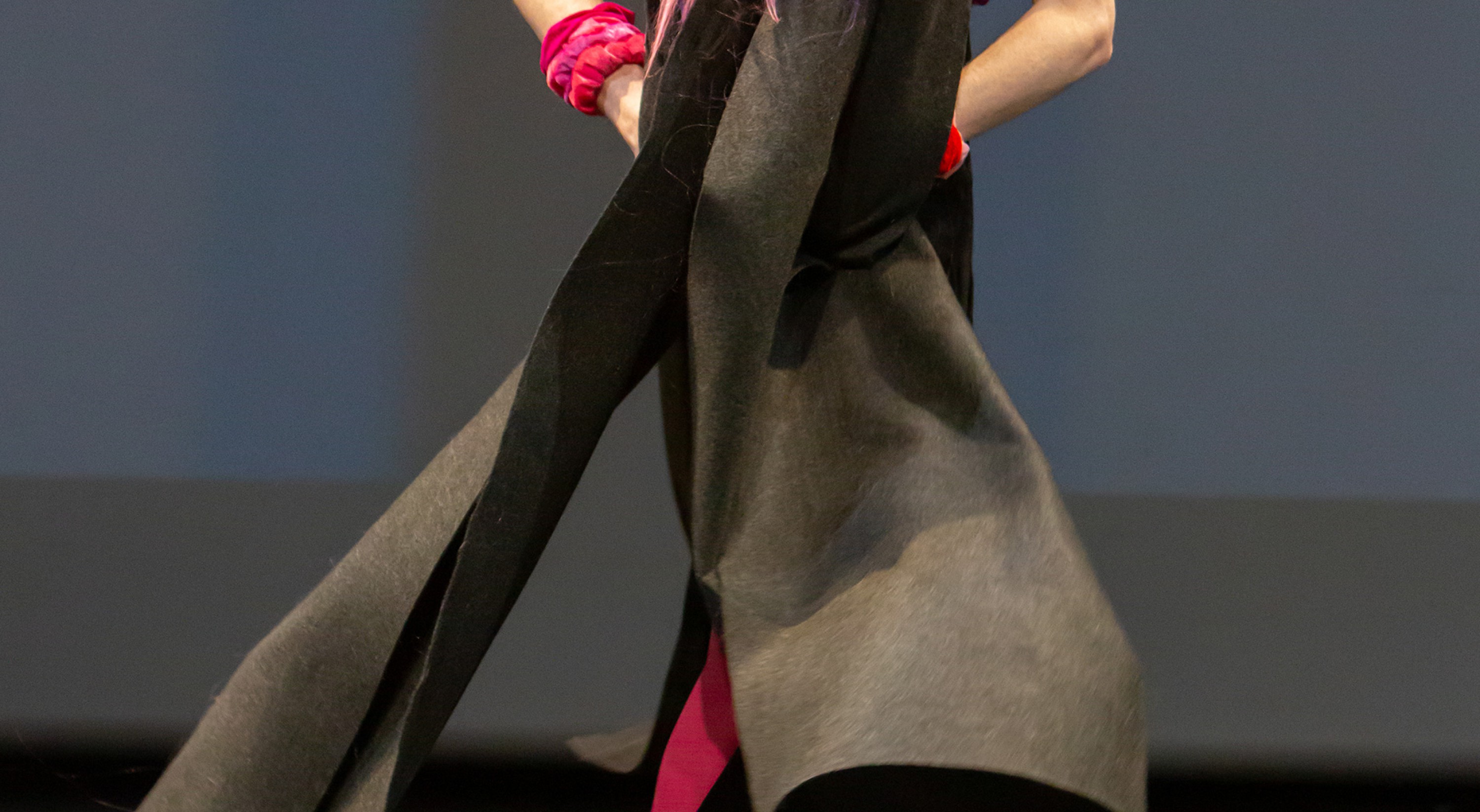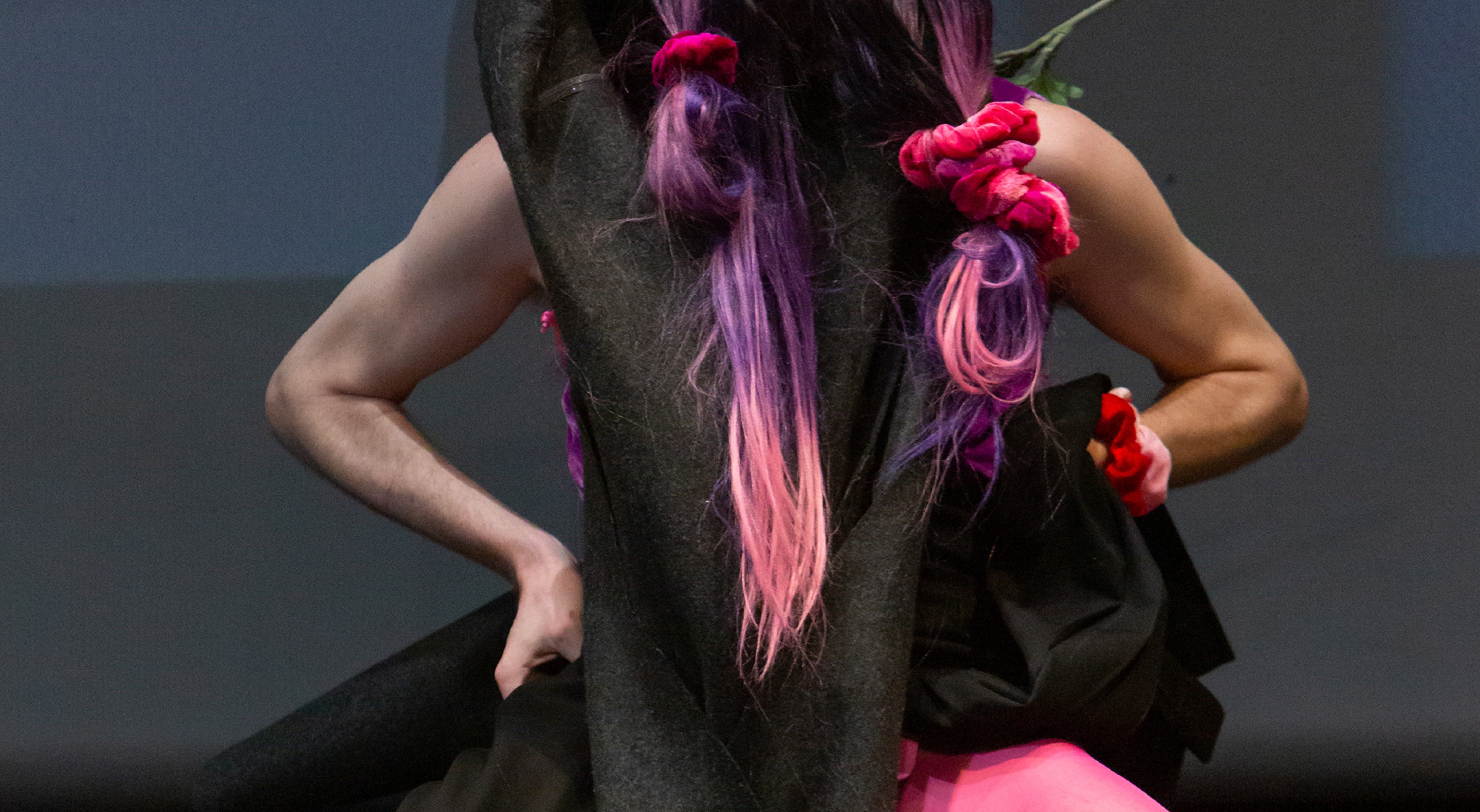Volmir Cordeiro
Métropole
novembernov 10 – 13
novembernov 23 – 24
Choreography and performed by, Volmir Cordeiro
Percussions, Philippe Foch
Sound design, Arnaud De la Celle
Lighting design, Abigail Fowler
Costume design and fabrication, Clément Picot, and Dat Vu
Costume realisation, Coco Blanvillain
Scenography realisation, Hervé Blanc
Video, Margaux Vendassi
General management, Aliénor Lebert
Thanks to, Paul B. Preciado, Guillaume Leingre
External sight, Carolina Campos, Bruno Pace
Administration, production, diffusion : MANAKIN / Lauren Boyer & Leslie Perrin
Trainee, Paca Tim Faraus
A piece dedicated to Lia Rodrigues
A show coproduced by Points communs, nouvelle scène nationale de Cergy-Pontoise et du Val d’Oise, La Briqueterie and Festival d’Automne à Paris.
A production by Donna Volcan
A coproduction by Théâtre la Vignette, scène conventionnée – Université Paul-Valéry ; Montpellier ICI – Centre chorégraphique national Montpellier – Occitanie / Pyrénées Méditerranée ; la Fondation Royaumont ; Points communs, nouvelle scène nationale de Cergy-Pontoise et du Val d’Oise ; La Briqueterie – CDCN du Val-de-Marne (Vitry-sur-Seine) ; and Festival d’Automne à Paris
With support from Théâtre Paul Éluard de Bezons, scène conventionnée d’intérêt national Art et Création – Danse
With thanks to Paul B. Preciado, Guillaume Leingre and Bruno Pace
With support from Graner, Centro de creació de dansa i arts vives (Barcelonne)
With support from Fondation d’entreprise Hermès
Partnership with France Culture
What is the place of life, death, and the injured but still alive human body in the metropolis? In a new solo, the dancer and choreographer Volmir Cordeiro explores, in the company of the musician Philippe Foch, social violence and movement as its combative response.
Dedicated to Lia Rodrigues, with whom Volmir Cordeiro collaborated as a performer prior to basing himself in France, Métropole is the product of the trials and tribulations of the year 2020. With the sanitary constraints making it impossible to bring to fruition a collective project, Volmir Cordeiro opted to focus his efforts on a work of a smaller scale. In response to an invitation from the philosopher Paul B. Preciado, presently carrying out a cycle of reflection at the Centre Pompidou, he draws up the outline of a “dance for the revolution”, which has in turn become the starting point for his new show. Onstage, the Brazilian choreographer begins with an assessment of what he terms as the “fabrication of fear”: a social de-naturalization embodied, metaphorically, by the tentacle-like public space of the metropolis. Set to the percussion of Philippe Foch, he then returns to the animal-like nature of the body as a way of patching up the wounds, via the invention of a dance in the form of a combat arena. Métropole brings into being a choreographic response to the structures which, in today's world, put constraints on the living.
In the same place

